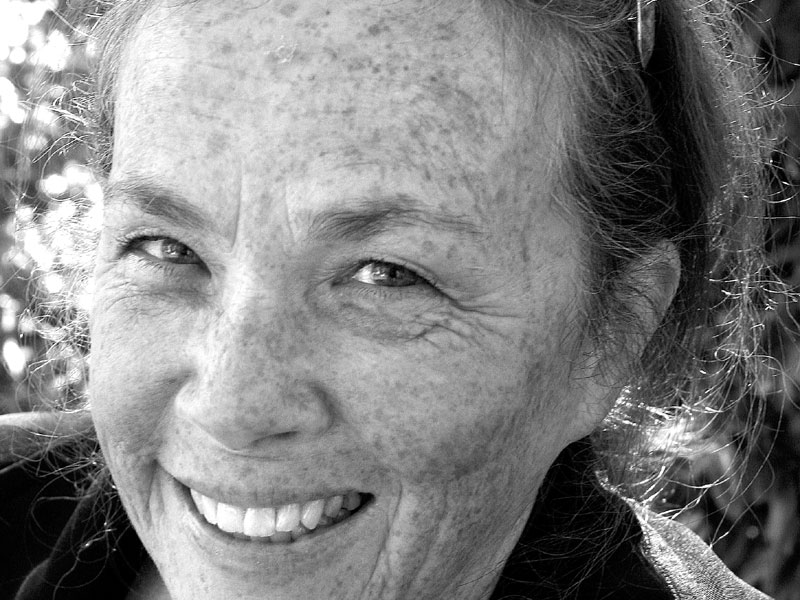Columnists
Pandemic toddlers

Week number fifteen, sixteen, ten or eleven? Who really knows? I do remember being at Kingston General Hospital on January 8th, for an appointment, and being asked “all of the COVID/not COVID questions”. “Have you travelled outside of Canada in the last two months? Have you been in contact with anyone who has travelled outside of Canada in the last two months? Do you have a sore throat or a fever? Have you had a cough that lasted more than ten days?” So, did the medical professionals know something then, before we all became officially aware of a problem and just weren’t saying? Whatever, we’ve all been in the state of stress, isolation and lockdown for months. How we, the grown-ups, deal with it has been interesting to observe. Some of us have thrown ourselves into baking or painting or home renovations or knitting or sewing masks or reading or Zooming music sessions, Skype and, of course, endless Netflix movies. Although most of us miss our get-togethers with friends and family, we likely won’t have any problems picking up where we left off, sometime in the future. Most of us adult-types have “social skills 101” figured out. Young children, on the other hand, may have issues with this unscheduled interruption of their social development.
The thing is, I can only speak to this interruption of social development from my family’s perspective, especially of our youngest grandson. Alfred The Early was just hitting his stride in February of this year, as toddlers tend to do when they’re about eighteen months old. He was finally old enough for morning programmes at the MFRC (family centre) on the CFB in Kingston. There, he was developing his sharing, caring and communication skills while getting down to the important business of playing and snacking with other children in his peer group. As an “early arriver”, there was some concern about delayed social development, but “play group” was bringing out the best in The Bubb. According to his mom, YCOM (youngest child of mine), he was venturing away from her for longer and longer periods of time to get into the thick of things over a puzzle board, a bucket of blocks, a bowl of orange slices, a truck, a book or a Plasma Car. Within our family group, a collective sigh of relief was heard. The Bubb was our first earlier arriver and he was working hard and was earning an A+ for his social development, even though it’s an ongoing process. And then? And then COVID-19 reared its ugly head. The MFRC had to close its doors and halt all of its in-person programmes. At that time, we all thought “How bad can it be if it’s only for a few weeks?” And, then a few weeks became a few more and a few more and, here we are. The Bubb’s exposure to a variety of people and experiences, as well as interacting with other young children, was gone with the click of a lock and a swipe of a disinfectant wiper. His peer group experiential learning about how to interact, communicate and to respond to social situations was gone. Being successful in a social situation—outside of the family group— padlocked. Within two weeks of the shutdown, his sleeping patterns slowly began to change and his speech development almost halted. He’s a pretty expressive little guy, outside of the group, but it became abundantly clear to all of us, he really needed other children to play and interact with. This isn’t just an Alfred thing. Every child needs social, physical and emotional interaction, outside of the family group, to develop.
So, here we all are, umpteen weeks into isolation, distancing, masks and bubbles. Old farts, like LOML and I, will manage the stress of being away from social interactions, but the experts aren’t too sure how the tots will fare. Although our grandson is just nearing his second birthday, child life specialists say that he time from around the ages three to six are especially important for a child’s social and emotional development, “with schools, daycares and playgroups having a major role in those areas”. Early play-based learning programs, like the Moms and Tots group at the MFRC, exposes young children to new rituals and structures. It looks as if some of us are worrying about our big, old selves and maybe forgetting about “the littles”. A disruption of a predictable routine can be as stressful to toddlers and preschoolers as it can be for teenagers and adults. When we don’t have that predictability in our routines we all feel a bit unsure and anxious. People, like YCOM, have been creative in building new experiences for Alfred the Early. Devoting most of her waking hours focused on the social needs and development of her son. Walking, reading, crafts, messy time and face-to-face communications are their new normal. The Bubb, although not much of a talker, has a keen sense of curiosity. He doesn’t like you to skip a word or a page when you’re reading to him. He wants to know how things work and watches with keen interest when something is being taken apart or repaired.
It’s not easy to be a little kid during a pandemic. In my mind’s eye I see him waking up from an afternoon nap, picking up his favourite book and reading it, without skipping words or pages, to his parents. It’ll be his new normal. It could happen.

Comments (0)